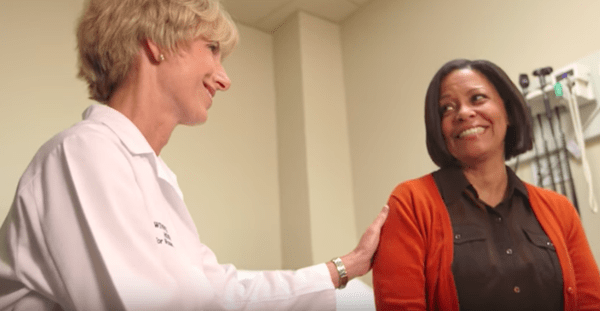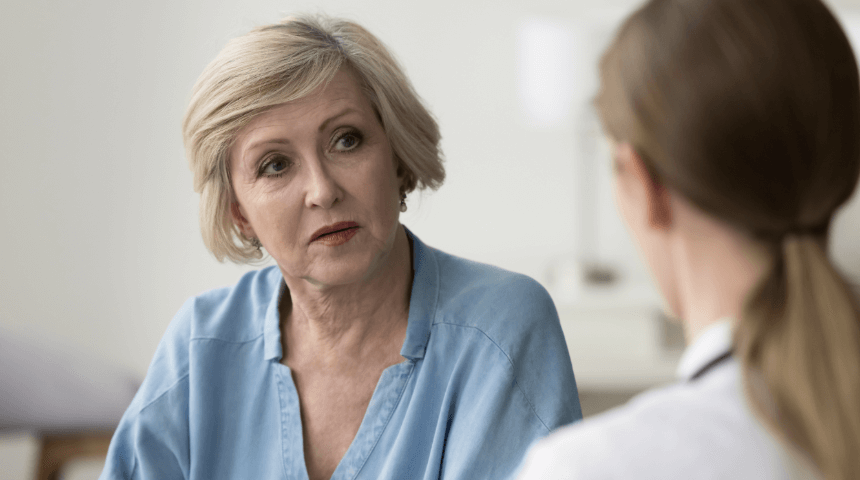Woman have symptoms of endometriosis for an average of six to ten years before getting diagnosed. Actress Julianne Hough, wants to help women become more aware of endometriosis through the SpeakEndo campaign. Hough, who first had symptoms of endometriosis when she was sixteen, but wasn’t diagnosed for four years, says in an interview that she initially didn’t want to complain about her symptoms. “I’m a tough cookie. I’m hardworking. I could deal with it on my own.” But eventually, after continued severe pain and bleeding, she sought help.
It’s well known that monthly periods can be uncomfortable, but if you’re one in 10 women in the U.S. or one of 176 million women in the world with endometriosis, periods can be downright painful and debilitating. Worse yet, the degree of discomfort –and its cause—is often misunderstood. If you have endometriosis, it may be hard to complete regular activities. Well-meaning friends or family may underestimate how much pain you feel, based on their experience with normal periods.
Endometriosis is a disorder that occurs when the tissue that usually lines the inside of the uterus grows outside that organ. When the tissue is inside the uterus, it thickens, then breaks down and bleeds at every menstrual cycle. When the tissue is outside the uterus, it behaves the same way—but there is no means for the tissue to exit the body, so it becomes trapped, causing cysts, irritation and scar tissue.
Any woman who has a period can develop endometriosis, but it is most common in women in their 30s and 40s.
Symptoms of Endometriosis Include:
- Painful, heavy periods
- Pain with intercourse
- Pain with bowel movements or urination, especially during your period
- Fatigue
- Digestive issues including diarrhea, constipation, nausea or bloating, especially during your period
- Spotting between periods
Because of its variety of symptoms, endometriosis is sometimes difficult to diagnose, particularly when you have additional symptoms including back or leg pain, headaches or a stabbing abdominal pain.
What Causes Endometriosis?
We don’t know what causes endometriosis, but we do know it likely involves genes and hormones like estrogen and progesterone. It may also involve a dysfunction with the immune system or exposure to certain chemicals before birth.
- Never giving birth
- Early periods
- Menopause at an older age
- High levels of estrogen
- Low body mass
- One or more maternal relatives with endometriosis
How Endometriosis is Diagnosed?
During an exam, your doctor will check your pelvis for cysts or scarring. An ultrasound might be used to get a view of your reproductive organs. Laparoscopy is a minor surgical procedure that can give the doctor a view of any tissue outside the uterus.
Treatment for Endometriosis
Although endometriosis does not have a cure, it is typically treated in one of three ways. Pain medications that contain anti-inflammatories can help reduce cramps. If this isn’t effective, doctors may suggest hormone therapy, since the fluctuation of hormone levels during the month is what causes the endometrial lining to thicken, break down and bleed. Hormone therapy is a temporary solution, and the benefits stop once the treatment ends.
Surgery can help remove the tissue located outside of the uterus as well as any scar tissue remaining. In the most extreme cases, a complete hysterectomy can be done, removing the uterus, cervix and both ovaries. A total hysterectomy is considered a last resort, particularly for women in their reproductive years, since the surgery would mean they would no longer be able to become pregnant.
Do You Have Endometriosis?
One study found that 11% of women with endometriosis hadn’t been diagnosed. How could they not know? It’s possible their symptoms were not severe enough, even though the tissue was evident upon examination. It could be that the women knew they had “bad” periods but didn’t realize their severe pain signaled a disorder. It could be that because of the myriad of symptoms, they did not get an accurate diagnosis.
Any time is the right time to talk with your doctor about any pain you have, and with March as Endometriosis Awareness Month, this may be the ideal time for you and your doctor to take a closer look at your painful periods and other symptoms to determine if you could have endometriosis.
Are you interested in learning more about our network of women's health physicians?
At Winnie Palmer Hospital for Women & Babies, the physicians recognize that each woman has unique healthcare needs. Our team of highly skilled professionals — with advanced training and specialization in women's healthcare — is here to address your individual needs and concerns. From well-woman care to obstetrics to minimally invasive gynecologic surgery, we are here to provide the caring and expert care you deserve.
Learn more now





